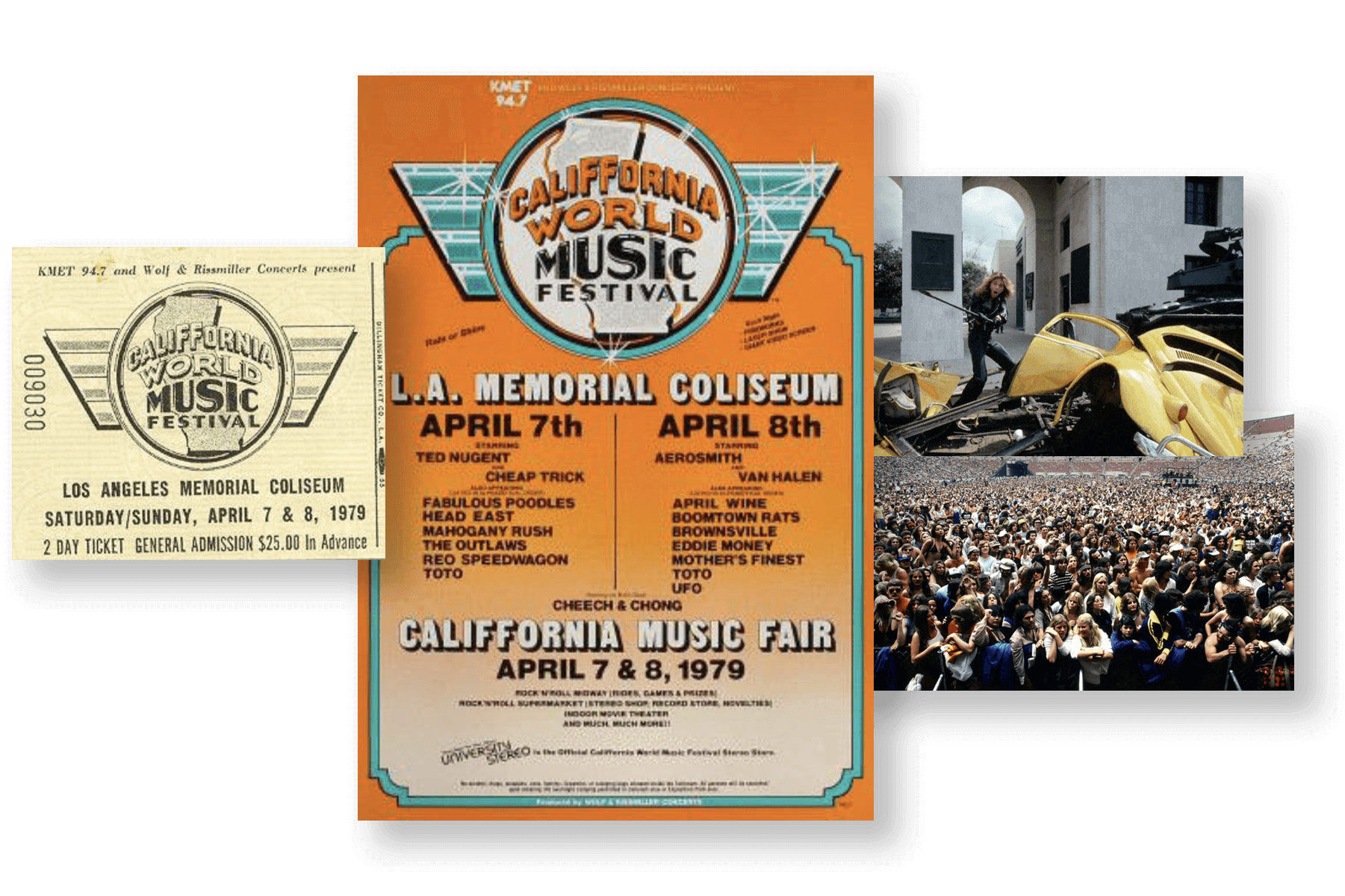July 15
1960
Democratic Party National Convention — John F. Kennedy Acceptance Speech
On July 15, 1960, Senator John F. Kennedy accepted his party's nomination for president at the Democratic National Convention at the Los Angeles Memorial Coliseum. His chosen running mate was Texas Senator Lyndon Johnson, and his memorable speech became known as “The New Frontier.”
In his speech, he famously said "The New Frontier of which I speak is not a set of promises - it is a set of challenges. It sums up not what I intend to offer the American people, but what I intend to ask of them."
Kennedy’s campaign was based on the separation of church and state, as well as regaining the support of Black voters for the Democratic party. The convention was one of many key moments in Coliseum history for the community to interact with political figures.
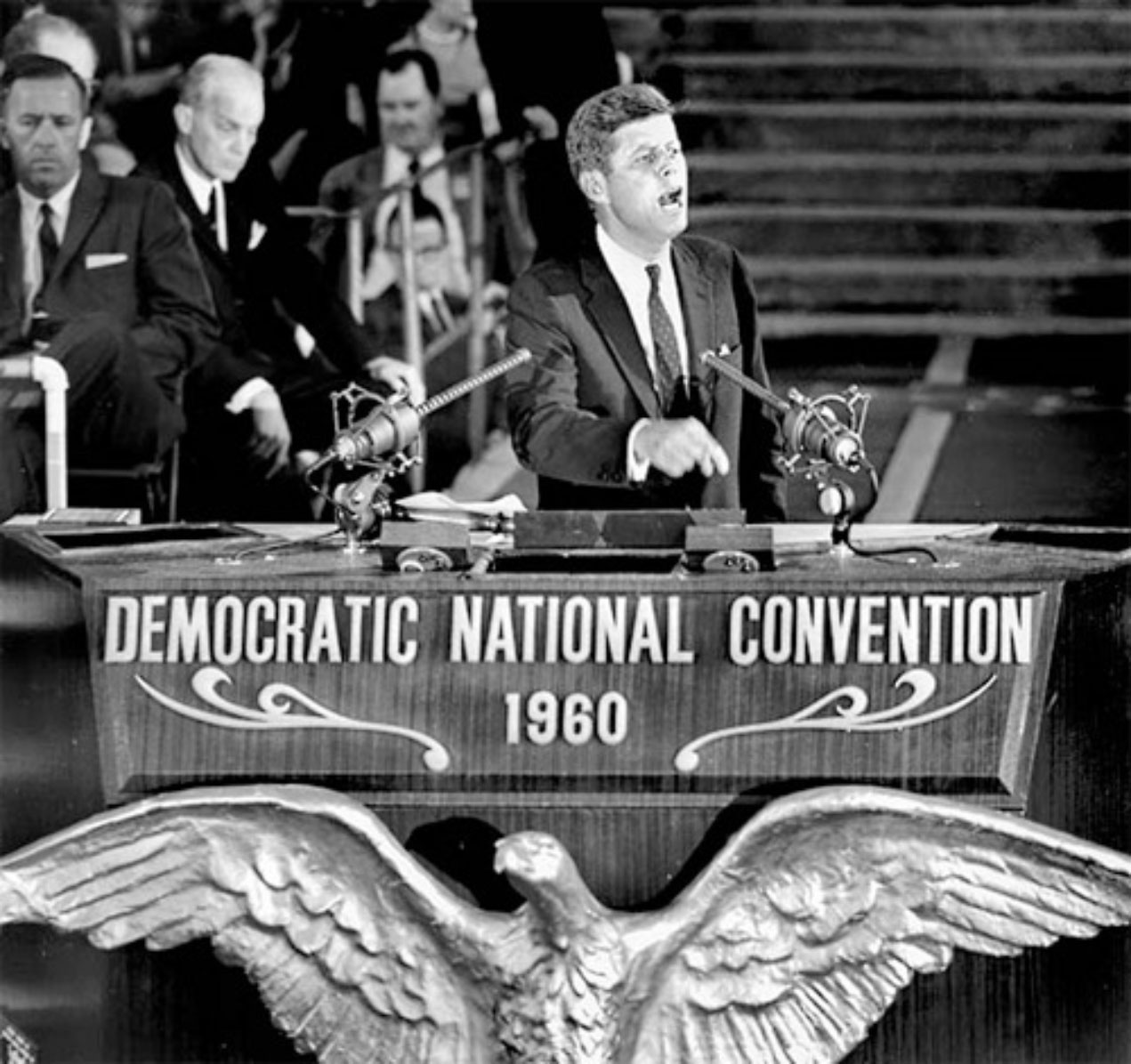
August 6
1960
Chargers Take on Titans
On August 6, 1960, at the Los Angeles Memorial Coliseum, a new football team called the Los Angeles Chargers took on the New York Titans in their first game for the AFL. The Chargers won, 27-7, in front of a crowd of 27,778.
Nearly 57 years later, the team has announced today that they will be playing their 2017 season at the StubHub Center in Carson.
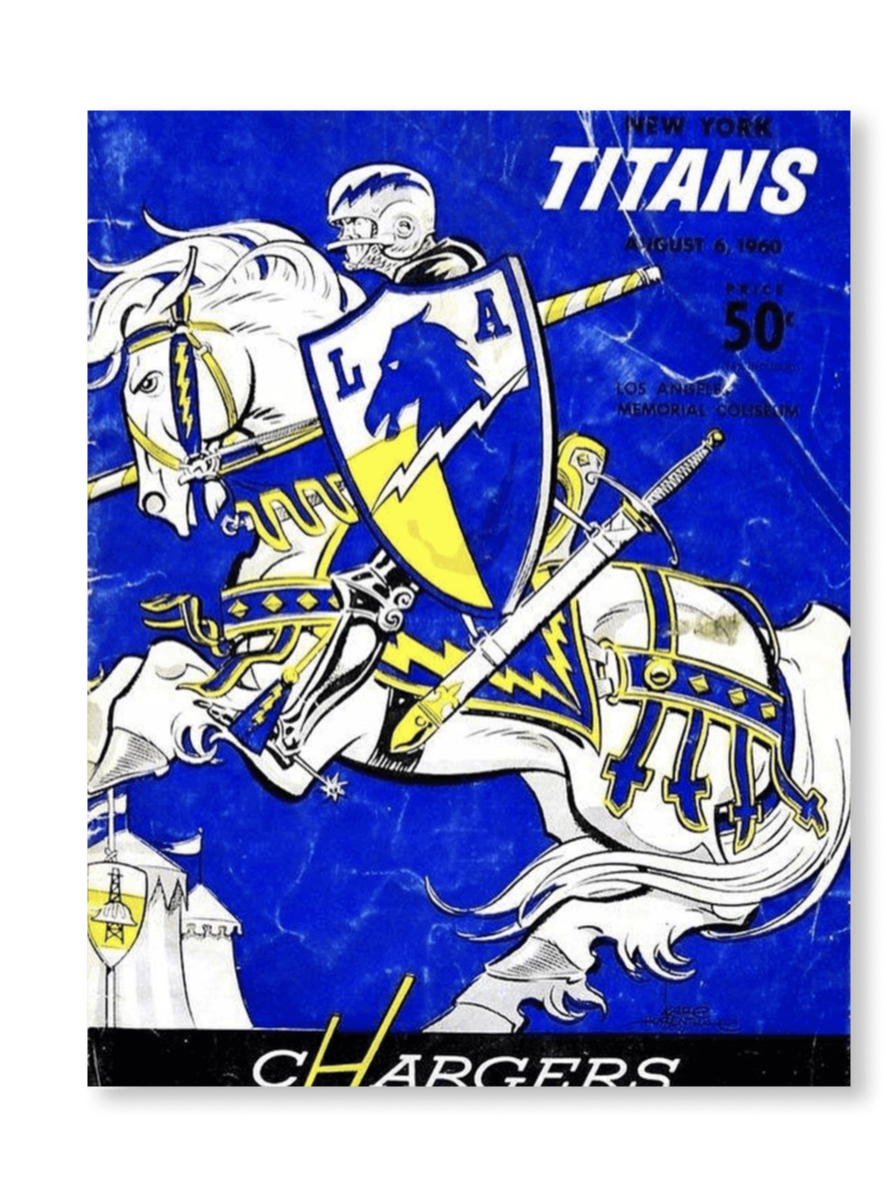
September 8
1963
Reverend Billy Graham Record Crusade
From August 15 through September 8, 1963, the LA community and beyond came to the Los Angeles Memorial Coliseum to listen to the religious teachings of Reverend Billy Graham. Nearly a million people (927,000) came to the Coliseum during these several weeks. On the final day of the crusades, 134,254 people filled the seats of the Coliseum and an additional 20,000 were estimated to have listened on loudspeakers in Exposition Park.
Billy Graham was one of the most influential Christian leaders, who became internationally recognized in the late 1940s. Reverend Graham hosted crusades across 185 countries over 58 years and his lifetime audience, including radio and broadcast, topped two billion.
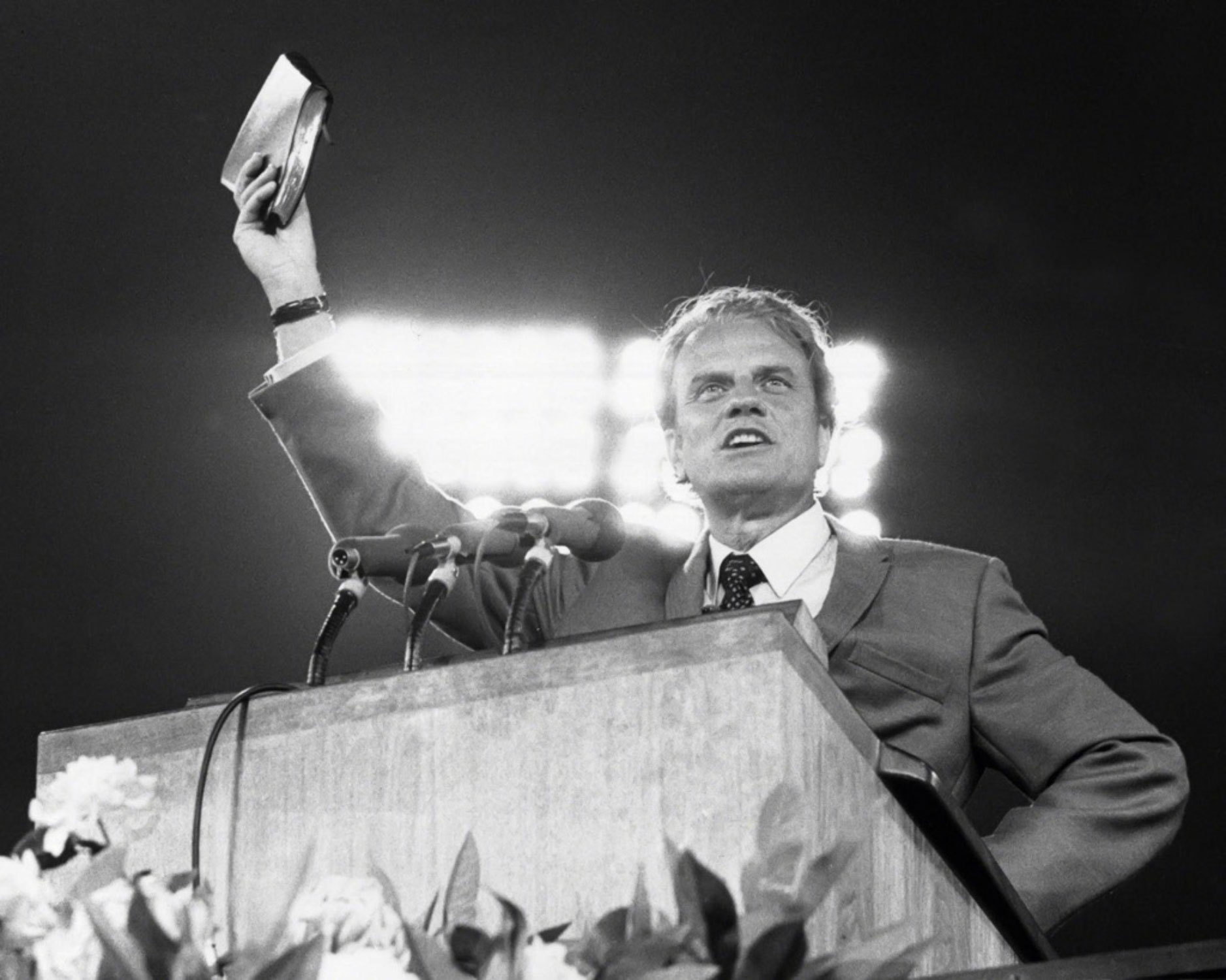
May 31
1964
Martin Luther King Jr. Speaks at Human Dignity Event
The Los Angeles Memorial Coliseum is honored to have the late Reverend Dr. Martin Luther King Jr. as part of our legacy. We remember Dr. King's impact as an ineffable and unparalleled civil rights leader; especially during the multiple rallies Dr. King held in Exposition Park at both the Memorial Coliseum and Sports Arena.
On May 31, 1964, less than a year after his famous "I Have A Dream" speech, the Coliseum hosted the Religious Witness for Human Dignity event featuring Dr. King. In front of an audience of 14,893 supporters, and many members of the Hollywood community (including Dick Van Dyke, pictured), Dr. King addressed many topics including the Civil Rights Act, which was at that time being stalled by the Senate. Dr. King spoke about the necessity of fighting through any political impasse, which still holds true 53 years later:
“Now is the time to make real the promises of democracy. Now is the time to open the floodgates of opportunity and allow now an avalanche of justice to pour upon us. Now is the time to get rid of segregation and discrimination. Now is the time to make justice a reality for all of God’s children. This is the challenge of the hour."
Just 19 days later, President Lyndon Johnson broke the stalemate in the Senate, and the Civil Rights Act was signed into law on July 2, 1964.
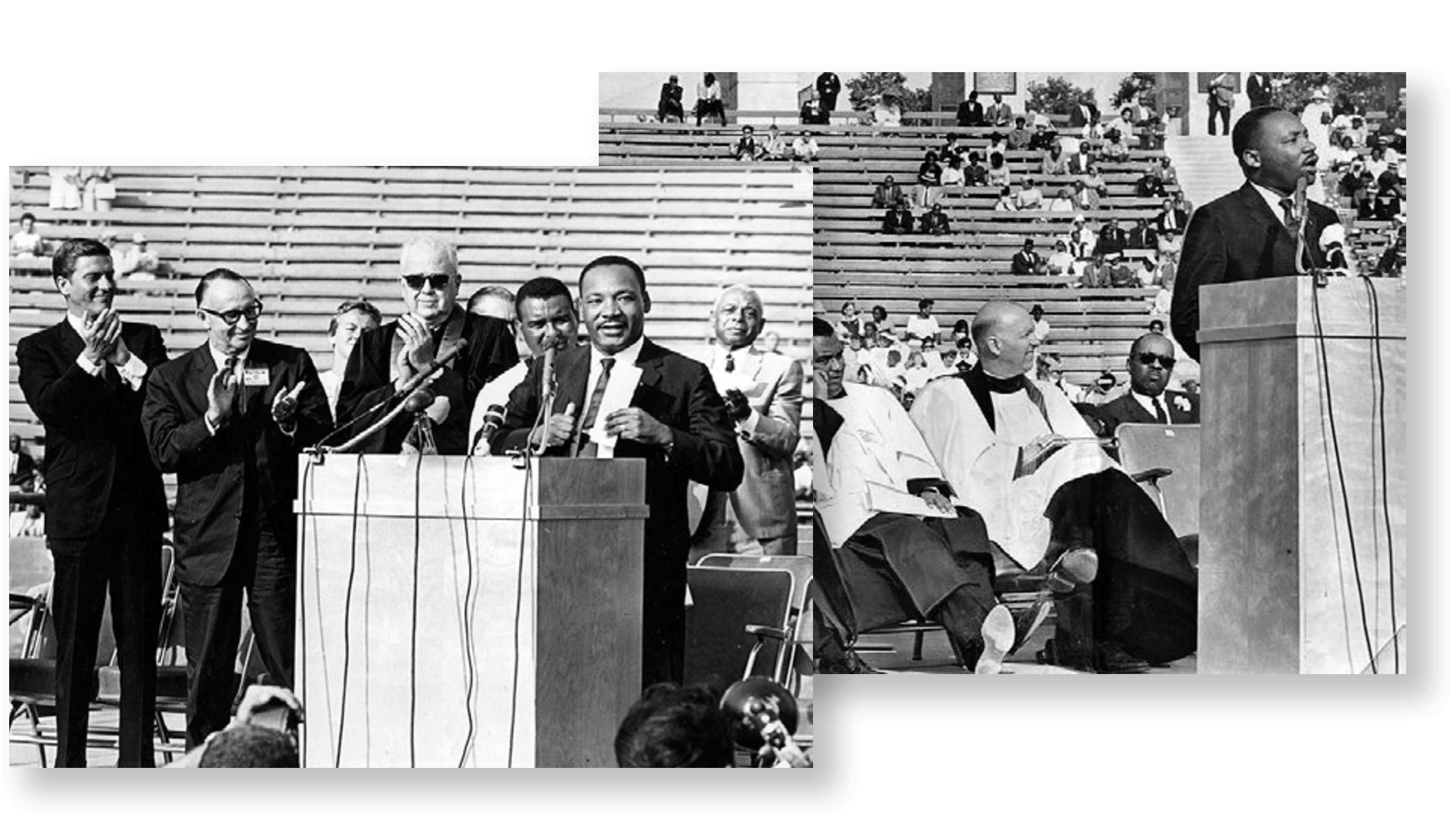
January 15
1967
Coliseum Hosts First Super Bowl
The Los Angeles Memorial Coliseum hosted the first AFL-NFL World Championship Game, later known as Super Bowl I, which took place on January 15, 1967. The National Football League champion Green Bay Packers faced off against the American Football League champion Kansas City Chiefs in front of a crowd of 63,036, as well as 50 million viewers at home on both the NBC and CBS television networks.
The Packers emerged victorious, 35-10, in a game that featured more than a dozen future Hall of Famers: Vince Lombardi, Herb Adderley, Willie Davis, Forrest Gregg, Paul Hornung, Henry Jordan, Ray Nitschke, Dave Robinson, Bart Starr, Jim Taylor, Willie Wood, Hank Stram, Bobby Bell, Buck Buchanan, Len Dawson, and Emmitt Thomas.
As would become synonymous with the Super Bowl's history of memorable half-time shows, two men from Bell Aerosystems strapped on "jetpacks" for a demonstration inside the stadium, landing on the field near the 50 yard line.
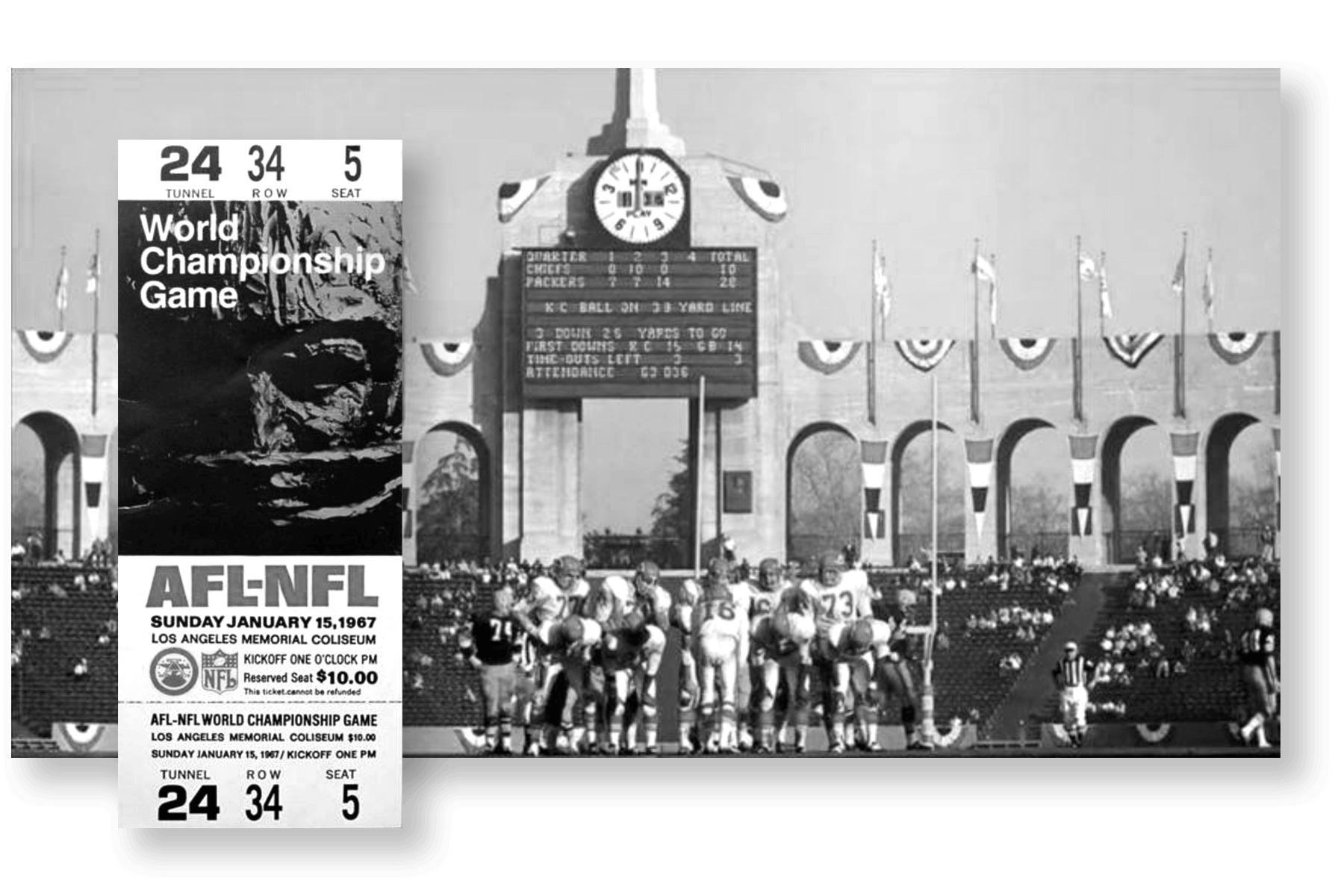
June 9
1967
Patterson vs. Quarry
Boxers Floyd Patterson and Jerry Quarry fought in a heavyweight bout before a crowd of 17,863 at the Coliseum. Patterson was rated the #4 contender in the world at this time and was itching to get another title shot at Mohammed Ali. The younger and less experienced fighter, Floyd came in to the match with a record of 46-5, including 35 knockouts.
The match went a full 10-rounds, and ended in a draw.
April 7
1968
Martin Luther King Memorial
After Martin Luther King Jr. was assassinated in early April of 1968, the Los Angeles Memorial Coliseum hosted a memorial to remember and commemorate the unparalleled civil rights figure. Just a year after his “I Have A Dream'' speech, the Coliseum hosted the Religious Witness for Human Dignity event, at which King spoke. Just 20 days after his speech at the Coliseum, President Lyndon Johnson broke the stalemate in the senate, passing the Civil Rights Act.
Nearly 16,000 members from the community joined together within the seats of the Coliseum to honor Martin Luther King Jr.’s commitment to civil rights and his work as a political activist. The words King spoke in the coliseum about the need for justice for all members of our world still ring true today.

August 27
1971
Blassie vs. Tolos
The first outdoor wrestling match since 1952 took place at the Coliseum. The 11-match event, promoted by the Olympic Boxing and Wrestling Club, sold tickets for just $5, and featured headliners Freddie Blassie and John Tolos. The promoters ramped up anticipation (and ticket sales) by having Blassie and Tolos fight every Saturday night on Channel 13’s "Wrestling Theatre", encouraging the wrestlers to play up their rivalry with taunts and other theatrics that would soon become synonymous with the sport. In the end, in front of a crowd of 17,847, Blassie triumphed over Tolos, making it one of the greatest show biz build-ups in televised wrestling history.
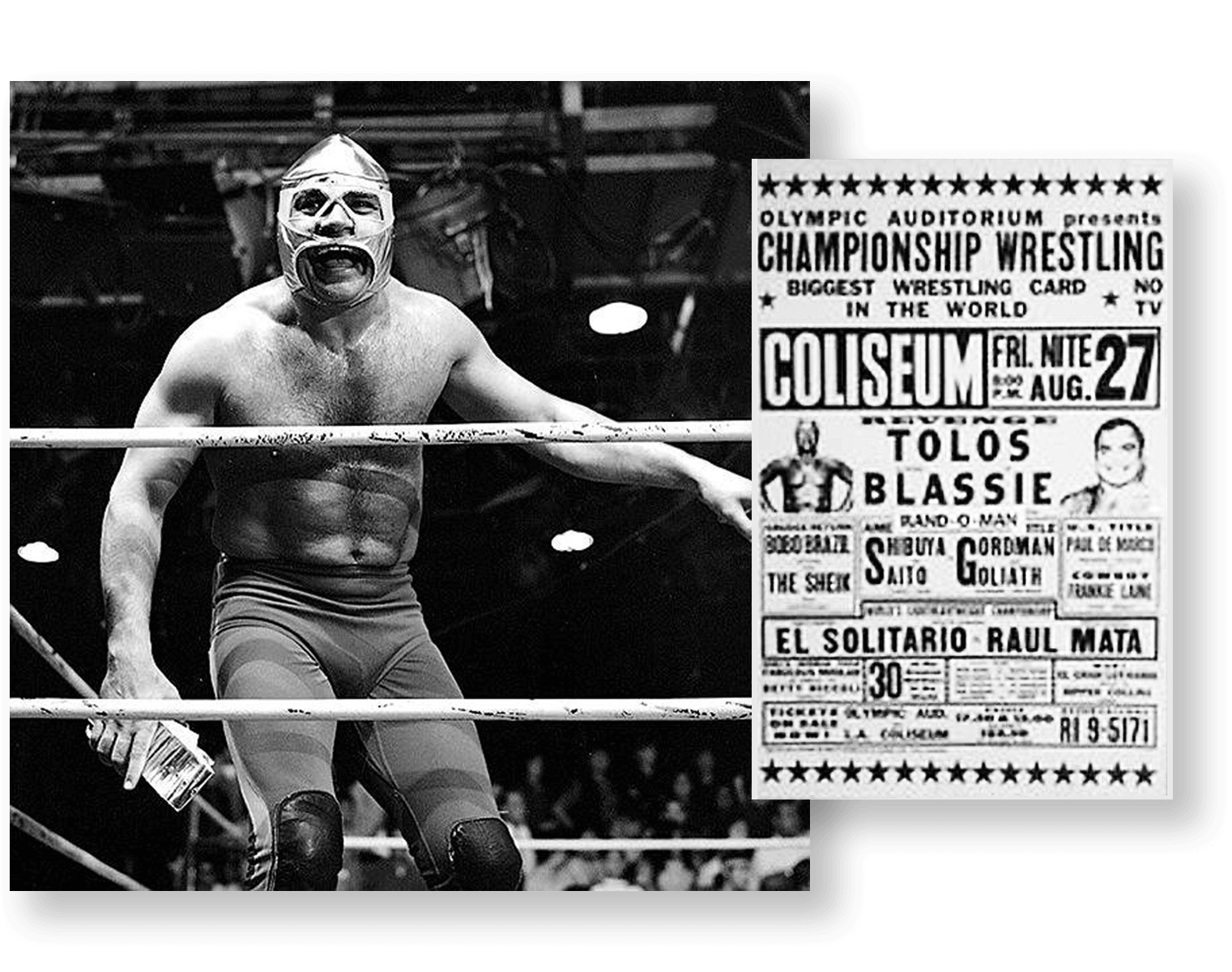
July 8
1972
Superbowl of Motocross
The first-ever motocross stadium event took place July 8, 1972 at the Los Angeles Memorial Coliseum in front of a crowd of 29,290.
Many people thought the idea to build a man-made course and tear it down within a week was unreasonable, but the event was a resounding success, and eventually went on to become the largest motocross event series in the United States. California locals had the privilege of watching both European and American racers compete in their backyard, with some of the best contestants as young as sixteen!
It has been said that the 1972 Superbowl of Motocross event set the stage for the most popular form of motorcycle racing, and will be remembered as the night that motocross became a household word.
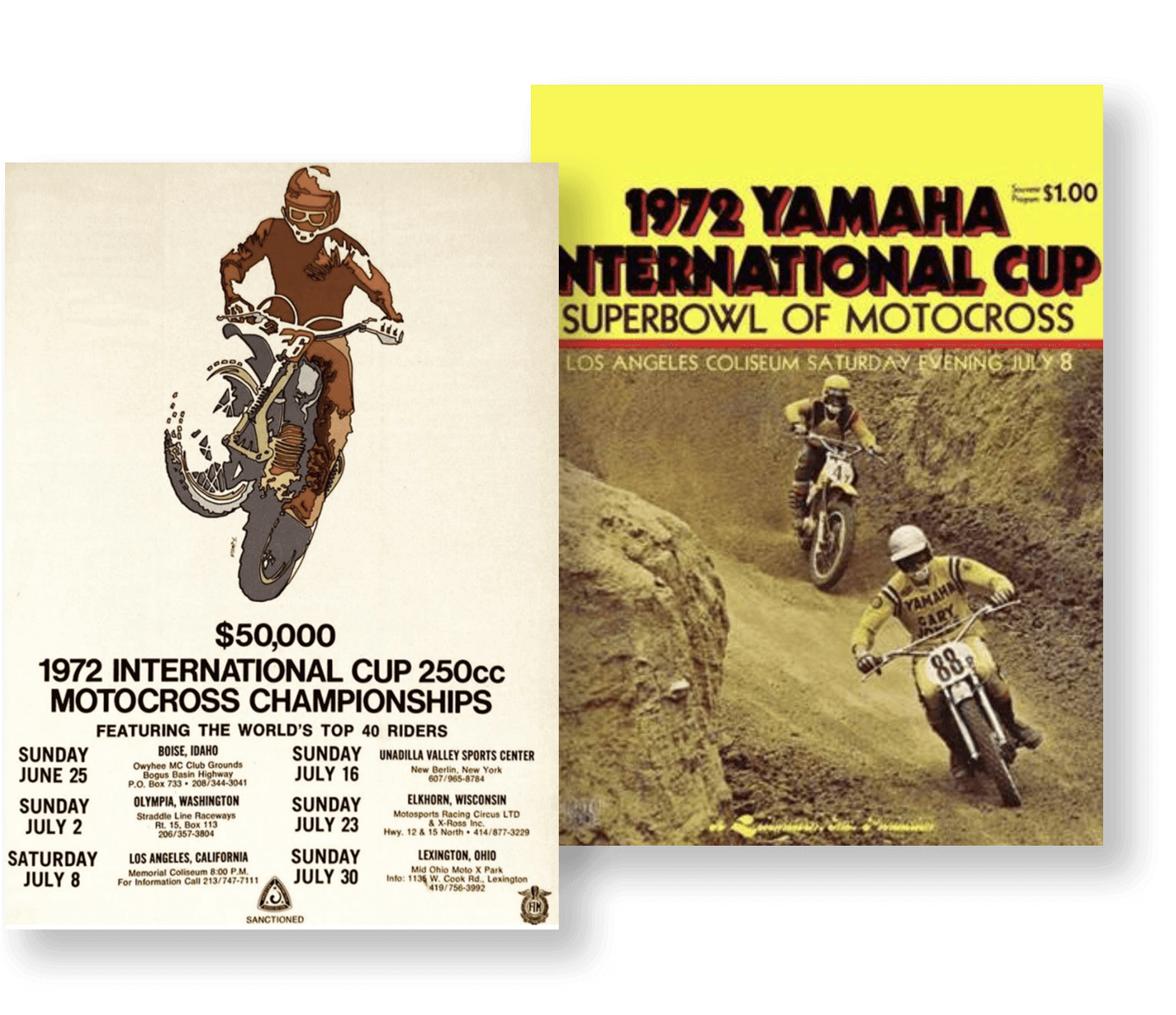
August 20
1972
Wattstax ’72 Benefit Concert
Touted as the “Black Woodstock”, Wattstax brought in over 100,000 local attendees and celebrated African American culture, unity and pride within the community, which at the time was recovering from the violent Watts riots that had taken place six years earlier.
The benefit concert featured important civil rights leaders within the community, including Jesse Jackson, and performances by top recording artists, Isaac Hayes, The Staple Singers, Kim Weston, Rufus Thomas and The Soul Children.
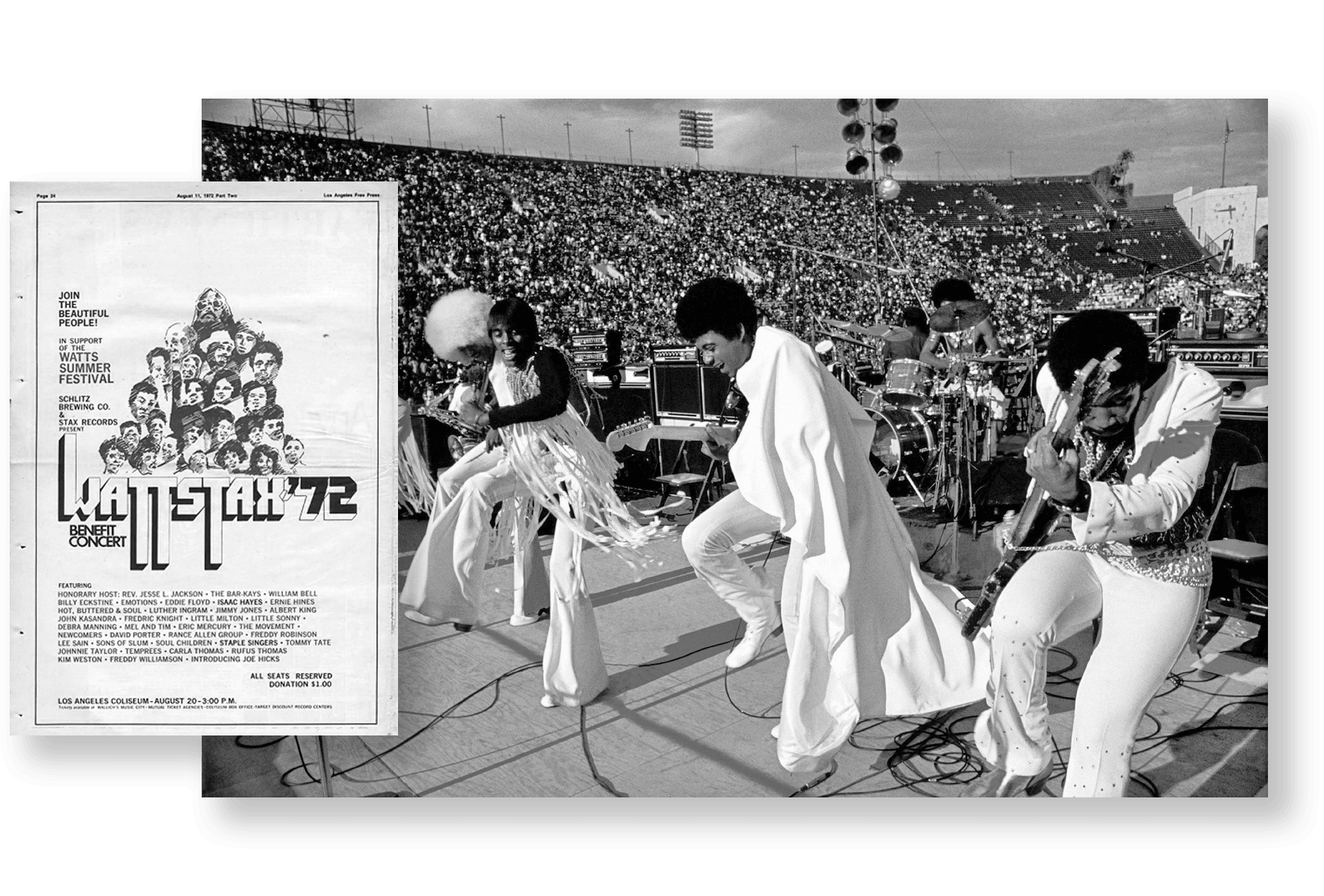
January 14
1973
Super Bowl VII: Miami Dolphins vs. Washington Redskins
Super Bowl VII was played between the American Football Conference champion Miami Dolphins, and the National Football Conference champion Washington Redskins. This was the second Super Bowl played at the Los Angeles Memorial Coliseum, the first being Super Bowl I. The Dolphins won with a final score of 14-7. The season was special for the Dolphins because they had a completely undefeated season. They are still the only team in modern NFL history to go completely undefeated. The Dolphin’s are also the only team to win a Super Bowl, despite being shut out in the second half.
The halftime show featured Woody Herman and the Michigan Marching Band, along with the Citrus College Singers and Andy Williams. The pregame show featured the crew of Apollo 17, who were the final humans to leave the moon one month earlier. The game was also the warmest super bowl to date, with a kick-off temperature of 84°F.
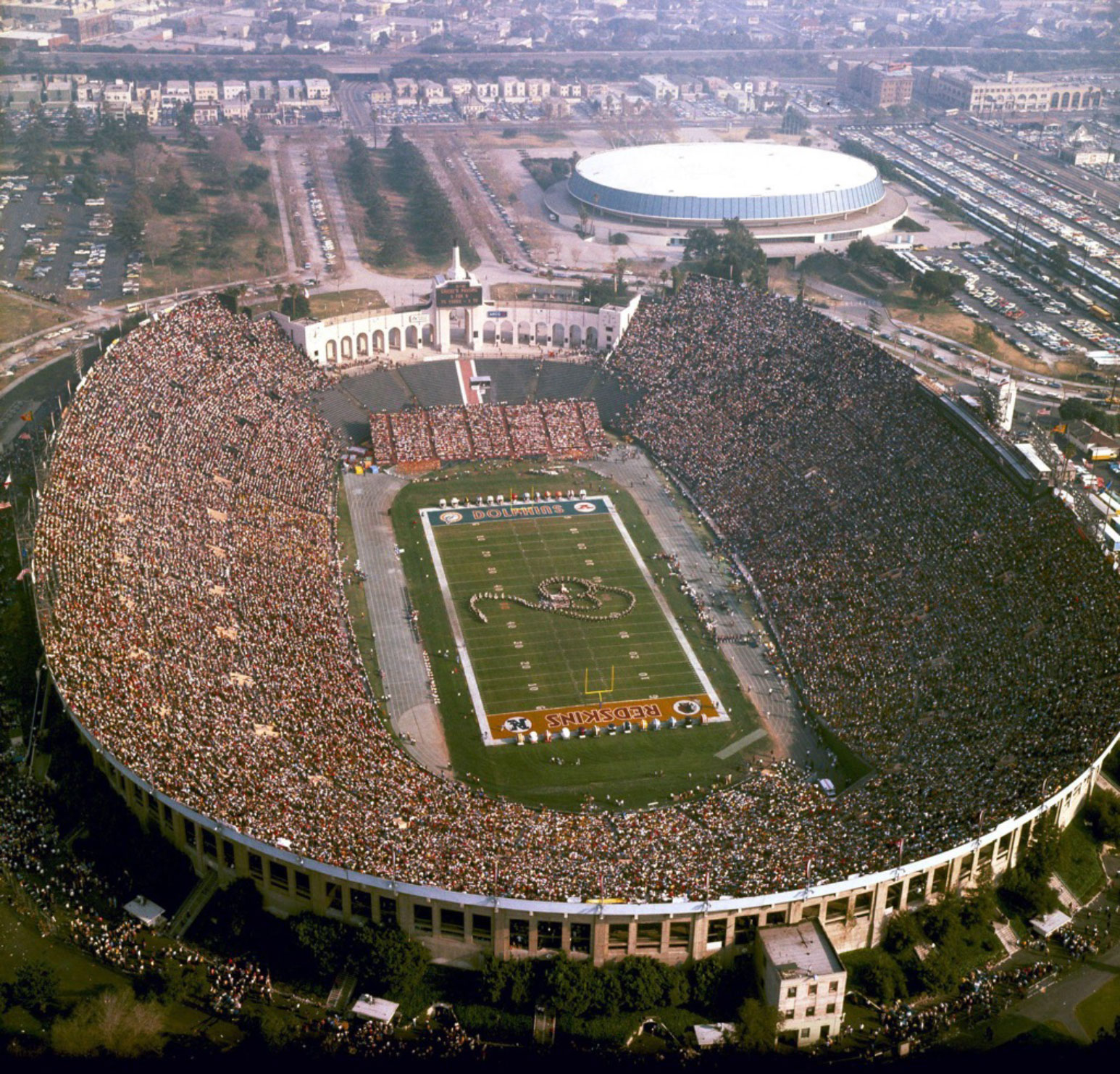
February 18
1973
Knievel Sets Record
On February 18, 1973, motorcycle daredevil Evel Knievel performed in front of a crowd of 35,000, successfully leaping over 50 crushed cars on the field. This jump provided Knievel with his largest audience to date, including television coverage on the ABC "Wide World of Sports" broadcast.
Throughout his 25-year career, Knievel made the majority of his jumps on the Harley-Davidson XR-750 motorcycle, wearing a now instantly recognizable jumpsuit designed to celebrate and inspire patriotism. Knievel sported several different variations of the "stars and bars" theme throughout his career, which drew comparisons to another American icon, Elvis Presley.
In a rather charming bit of irony, Knievel also filmed a motorcycle safety film shot contemporaneously at the Coliseum entitled "Not So Easy," narrated by Peter Fonda, who had himself gained iconic status in biker culture as writer and star of the 1969 blockbuster "Easy Rider."
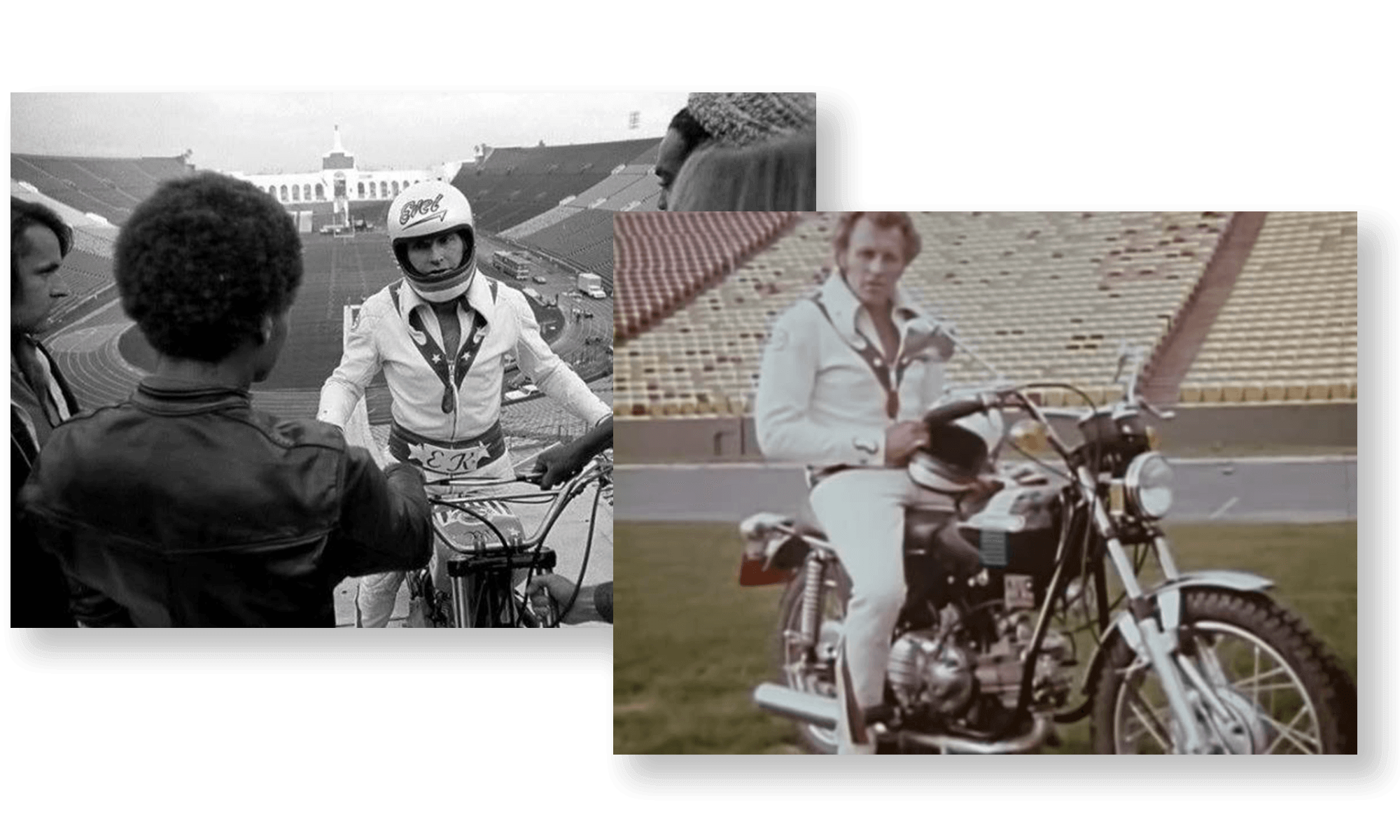
November 30
1974
USC vs. Notre Dame: “The Comeback”
USC and Notre Dame have long been rivals, drawing thousands of extra fans to the crowd. While every time USC plays Notre Dame is of note, the rivalry game that took place on November 30, 1974 was unlike any other. Sports Illustrated called the game the “17 minutes that shook LA.”
As the game started, it didn’t appear to be an immediate Trojan win. Notre Dame's score went as high as 24-0, with the Trojans yet to score any points. Notre Dame’s line calls were perfectly aligned, while USC was throwing short passes. Notre Dame had a strong first half, led by Clements and Bullock. Trojan fans were losing hope while Notre Dame fans cheered and screamed through the Coliseum.
As soon as the clock started for the second half of the game, the tables turned when Anthony Davis took the second-half opening kick back 102 yards. Five Notre Dame turnovers came next, and soon the USC Trojans had scored 55 points in a matter of 17 minutes. Notre Dame did not score once the entire second half. To this day, the third quarter of “The Comeback” game is the most points ever scored on Notre Dame in a single quarter — a day that went down in history for the fans and players of USC football.
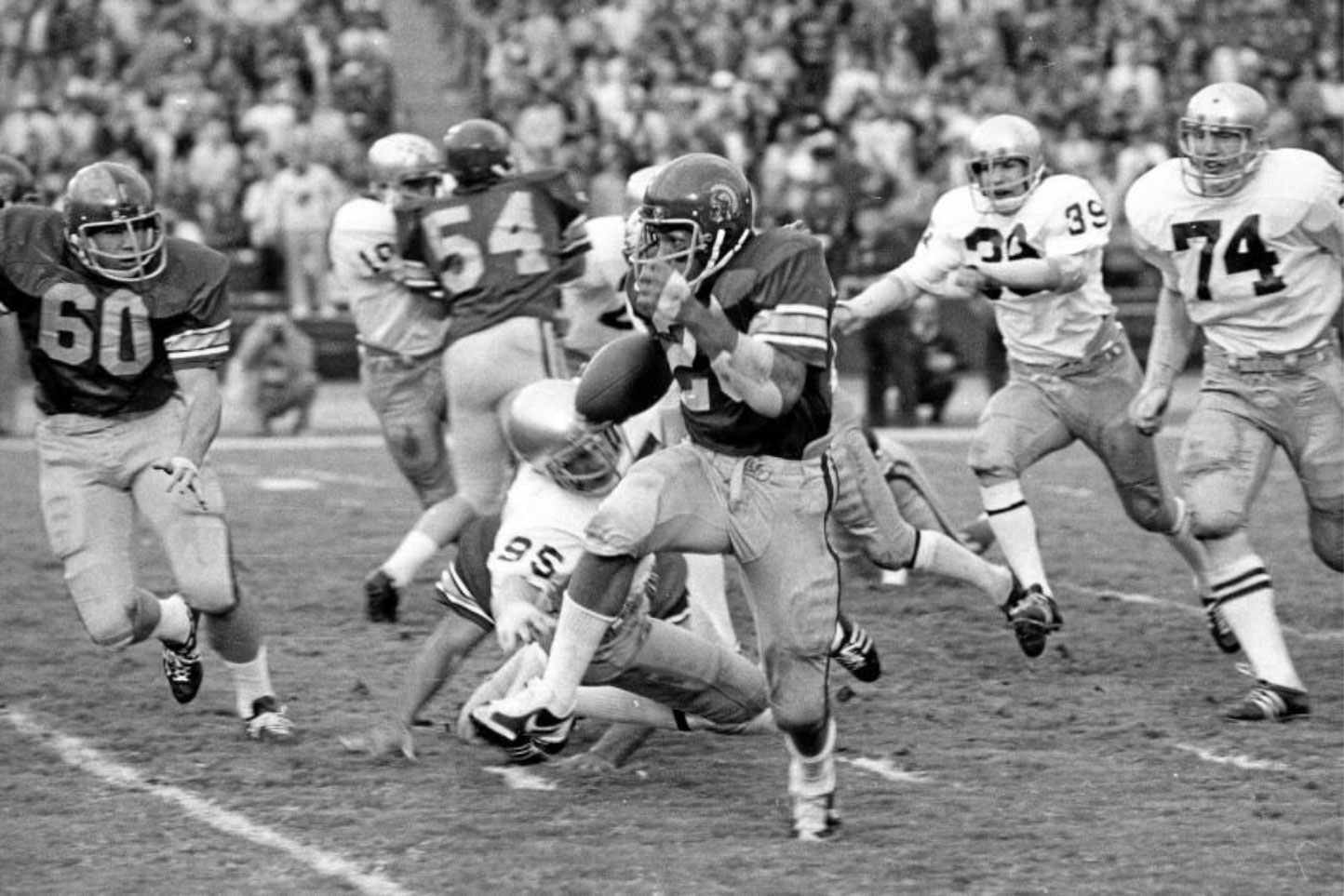
June 4
1977
Music Sound Funk Festival
With an attendance of 42,771, the Music Sound Funk Festival lasted 11 hours, with a line-up consisting of some of the all- time greats, including: Parliament Funkadelic, Bootsy's Rubber Band, Rick James, The Isley Brothers, Rufus with Chaka Khan, The Brothers Johnson, and Rose Royce.
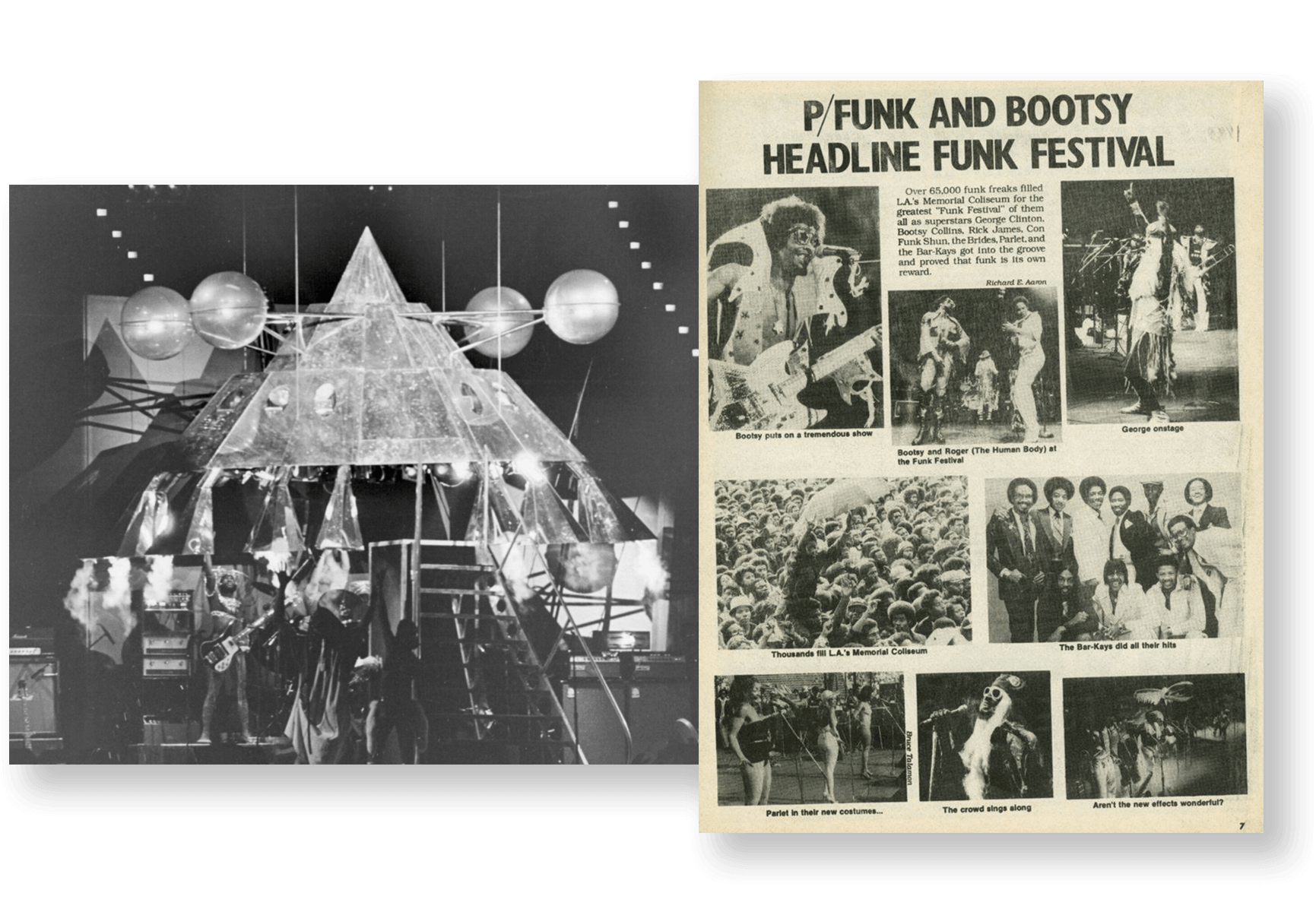
January 29
1979
Pro Bowl All-Star Game
The 1979 Pro Bowl was the NFL's 29th annual all-star game, and featured the most outstanding performers from the 1978 season. On Monday, January 29, 1979, before a crowd of 38,333, the NFC faced off against the AFC. Bum Phillips of the Houston Oilers led the AFC team against the NFC team coached by the Los Angeles Rams head coach Ray Malavasi. The NFC came away with the win, 13-7, ending what would be the last Pro Bowl to be played in Los Angeles.
Interesting fact: Leading the offense that day for the AFC was one of football's brightest stars, the Pittsburgh Steelers Lynn Swann. Swann has one of the most exemplary careers in the game. He was a consensus All-American at USC from 1970-1973 including the undefeated 1972 national champion team. He has received numerous honors including induction in the Pro Football Hall of Fame and College Football Hall of Fame. After football, Swann went on to a distinguished career in broadcasting and also served as USC Athletic Director from 2016-2019.
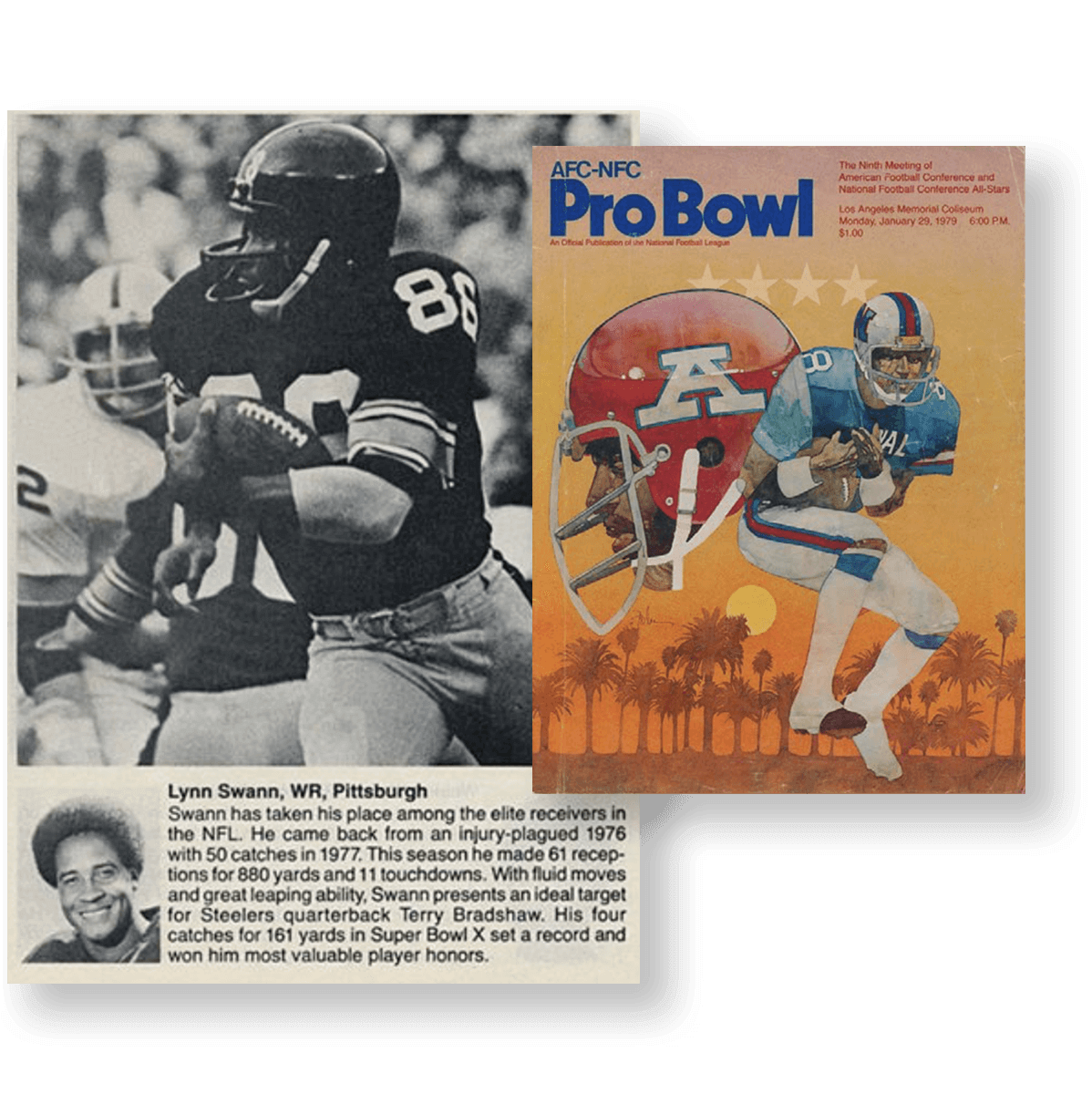
April 7
1979
CaliFFornia World Music Festival
The CaliFFornia World Music Festival took place at the Los Angeles Memorial Coliseum on April 7th and 8th, 1979. The lineup was jam-packed with an impressive amount of rock stars from the 70s, including performers such as Aerosmith, AC/DC, Van Halen, and Ted Nugent. The night was emceed by popular comedy duo Cheech & Chong.
The event was filled with all kinds of entertainment, including food, rides, games, a record shop, a movie theater and skateboarding exhibitions. Tickets were sold for either $15 or $25, and over 45,000 people attended the festival.
